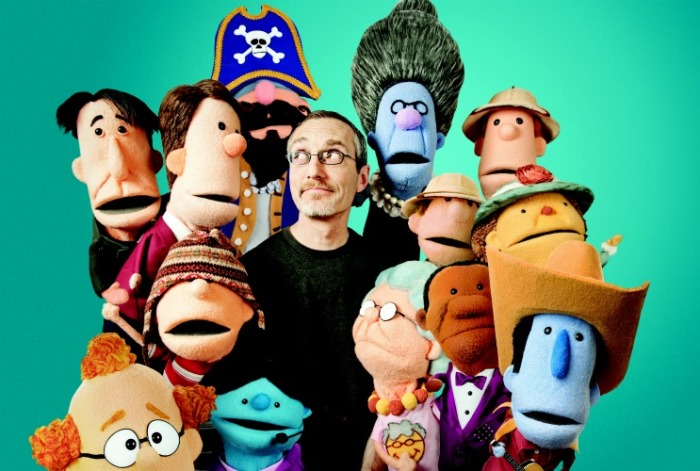'VeggieTales' creator talks white privilege; credits success to access to education, opportunities

Phil Vischer, creator of the popular Christian animation "VeggieTales," said he decided to use his platform to address issues of racial injustice by penning a blog where he said that being white gave him access to opportunities that others did not have.
With over 65 million "VeggieTales" videos to date, Vischer said he's had a successful life despite being raised in a single-parent home and surviving on baloney sandwiches.
"I'm watching America burn, and watching fingers point in all directions. Of course, I'm not a racist. I've never kneeled on anyone's neck or denied housing to anyone. So I'm clean. Right?" He recently wrote in a blog posted to his podcast website Holy Post.
"This situation has me examining how I tell my story, and I am more convinced than ever that how we tell our stories matters. I have benefited from racial injustice," Vischer said.
The animation filmmaker detailed how hard life was for him after his parents divorced. He then revealed the struggles that he, his siblings, and his mother faced. Despite all odds, they all went on to accomplish great things.
"After marrying a tradesman, my mother got her doctorate at age 50 and became a college professor. My brother ended up at Harvard Law and is now dean of a law school in Minnesota. My sister has a doctorate and teaches in NYC. And I am a filmmaker of moderate renown," Vischer continued.
"Did we work hard? Yes, I guess so. But lots of people work hard and don't have nearly as much to show for it. So what is the missing factor? The factor that may be even more important than the hard work," he said: "We were white."
Vischer then reflected on the many privileges he said his family had, going back generations, because they were white. He also spoke of the opportunities his grandparents and parents had because they had access to quality education.
"How did a wealthy, white suburb help launch my filmmaking career? A good education was part of it," he said. "A high school with lots of resources was part of it. Making films with my church friends whose neighboring wealthy high school actually had film classes was part of it."
"A friend at church had a friend who owned a video production company that just happened to be looking for a summer intern. A couple of phone calls and I had an internship, that led to a job, that led to my work in computer animation, that led to my career as a filmmaker of moderate renown," he added.
He said although his story might seem like it has nothing to do with race or economic inequality, it does because of the opportunities allotted to him.
"We had friends who knew people who owned companies. If we had relocated to a much poorer community — specifically a non-white community — the odds of bumping into someone at church who knew someone who owned a film production company would have been next to nothing. Wealthy communities bring proximity to opportunity," he said.
Vischer said those facts have "everything" to do with racial injustice.
"Way back in the 1930s the federal government decided that white families should be encouraged to own homes, and black families should not. Seventy years of policies encouraging and underwriting white home ownership, and discouraging black home ownership have led to a profoundly inequitable America," Vischer said.
"Did I work hard? Yes, but not unusually hard. Not nearly as hard as many of my brown and black neighbors, who hold down multiple jobs just to pay rent."
Were we of above-average intelligence? I suppose so. But so are many people who struggle to find opportunity in America. So what made the difference? We were white."
Vischer ended his blog by sharing what he thinks about the unrest happening in the U.S. following the death of George Floyd.
"So when I see people of color protesting injustice or living in poverty in wrecked communities, people in Ferguson, Missouri, or Minneapolis or Chicago or Flint, Michigan, and I feel the urge to say, 'Well, if you just worked harder you could do what I did…' That is a lie. We built a system to favor ourselves. And it worked amazingly well," he added.
Follow Jeannie Law on Twitter: @jlawcpFollow Jeannie Law on Facebook: JeannieOMusic





























